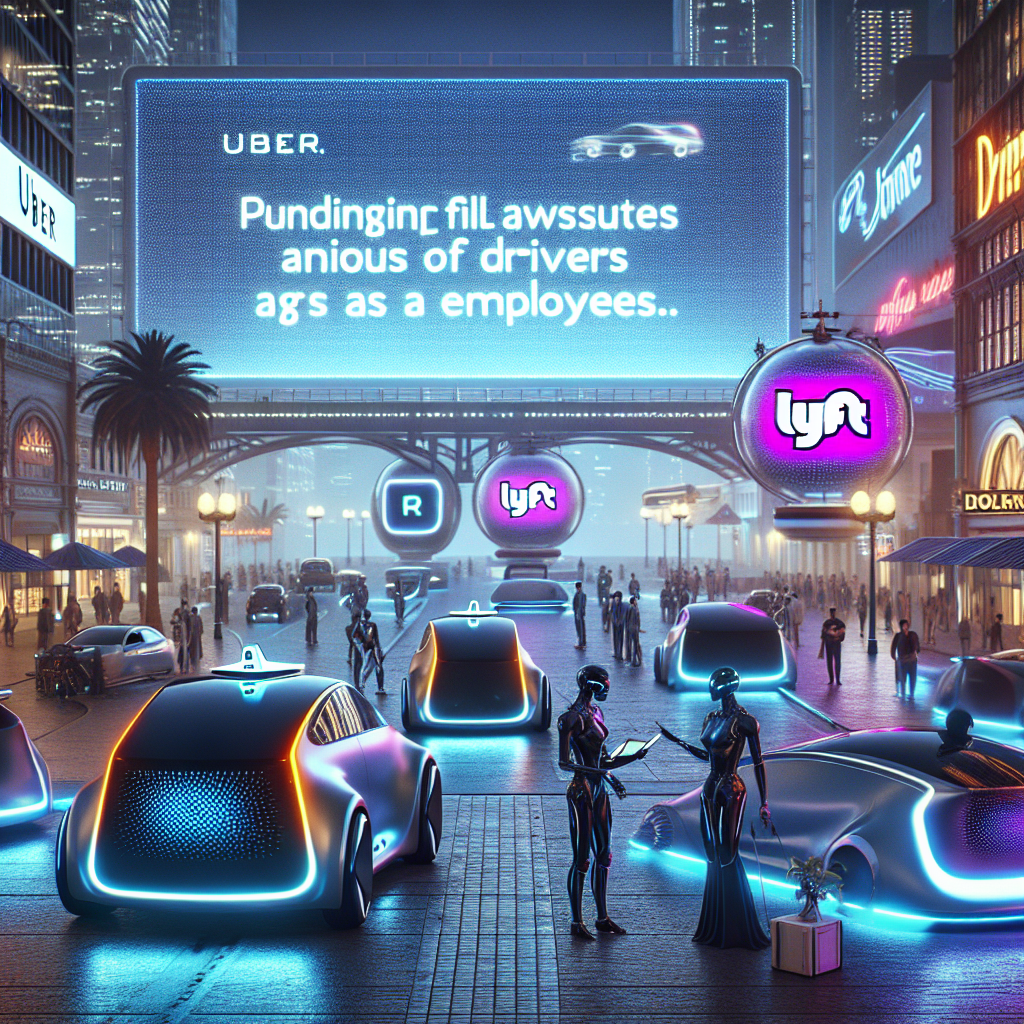California Lawsuit: Uber and Lyft Face Legal Action Over Driver Classification
California and major cities sue Uber and Lyft for misclassifying drivers as contractors, violating state law and impacting gig economy workers.
“
California, along with three major cities, filed a lawsuit against Uber and Lyft for wrongly categorizing drivers as independent contractors, in breach of state regulations. The legal action asserts that drivers should be considered company employees and thus entitled to various benefits like minimum wages, overtime pay, sick leave, health benefits, and access to social security programs.
Assembly Bill 5, the law under scrutiny, poses a significant threat to the operational models of Uber and Lyft, both of which play the role of technological intermediaries connecting ride-seekers with drivers. Assessments by Barclays suggest that reclassifying California drivers as employees could result in annual costs of $506 million for Uber and $290 million for Lyft, challenges the companies, who are not yet profitable, might find daunting to shoulder. The state houses major markets and the headquarters of both firms.
Moreover, the lawsuit underscores underlying tensions relating to gig economy workers, particularly those frontlining the coronavirus crisis. Employees from companies like Instacart and Postmates have voiced concerns over insufficient wages, set and managed by platform algorithms, failing to mirror the hazards they face during the current health emergency.
Although the new California law went into effect on January 1, ride-hailing companies, along with other gig-based platforms, have argued against its applicability, viewing it as unfairly targeting their business operations. The law, AB 5, builds on a 2018 ruling by the California Supreme Court, establishing criteria to differentiate between contractors and employees. Labor experts remain skeptical about whether ride-hail companies can meet these stringent requirements.
In response to the pandemic, Uber modified its driver app earlier this year to offer drivers more control over their working conditions. California drivers now have the liberty to decline certain fares without repercussions from the algorithm. However, both Uber and Lyft continue to assert that their drivers are not employees.
The timing of the lawsuit is amplified by the COVID-19 outbreak, with trip requests for Uber and Lyft plummeting by 80 percent in some areas. Drivers have halted operations for fear of contracting the virus while on duty. The reluctance of these companies to contribute to unemployment insurance programs has left drivers ineligible for state-run benefits, although they might qualify for federal relief.
“This lawsuit could not have emerged at a more critical moment,” stated San Diego City Attorney Mara Elliott. The legal action seeks to penalize Uber and Lyft with fines of $2,500 per misclassified driver in California, corresponding to potentially millions in penalties for each entity. The lawsuit underlines the companies’ practices of shifting healthcare expenses onto taxpayers, harming compliant competitors, and evading substantial insurance payments by misclassifying their workforce.
Published on: 2020-05-05 21:31:00 | Author: Aarian Marshall










